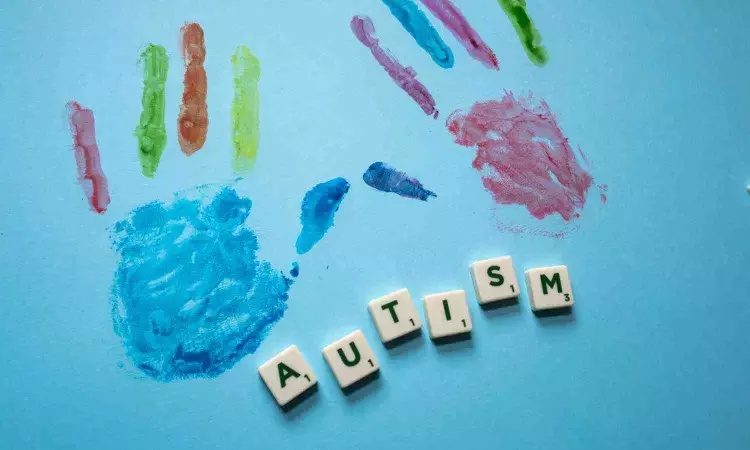- Home
- Medical news & Guidelines
- Anesthesiology
- Cardiology and CTVS
- Critical Care
- Dentistry
- Dermatology
- Diabetes and Endocrinology
- ENT
- Gastroenterology
- Medicine
- Nephrology
- Neurology
- Obstretics-Gynaecology
- Oncology
- Ophthalmology
- Orthopaedics
- Pediatrics-Neonatology
- Psychiatry
- Pulmonology
- Radiology
- Surgery
- Urology
- Laboratory Medicine
- Diet
- Nursing
- Paramedical
- Physiotherapy
- Health news
- Fact Check
- Bone Health Fact Check
- Brain Health Fact Check
- Cancer Related Fact Check
- Child Care Fact Check
- Dental and oral health fact check
- Diabetes and metabolic health fact check
- Diet and Nutrition Fact Check
- Eye and ENT Care Fact Check
- Fitness fact check
- Gut health fact check
- Heart health fact check
- Kidney health fact check
- Medical education fact check
- Men's health fact check
- Respiratory fact check
- Skin and hair care fact check
- Vaccine and Immunization fact check
- Women's health fact check
- AYUSH
- State News
- Andaman and Nicobar Islands
- Andhra Pradesh
- Arunachal Pradesh
- Assam
- Bihar
- Chandigarh
- Chattisgarh
- Dadra and Nagar Haveli
- Daman and Diu
- Delhi
- Goa
- Gujarat
- Haryana
- Himachal Pradesh
- Jammu & Kashmir
- Jharkhand
- Karnataka
- Kerala
- Ladakh
- Lakshadweep
- Madhya Pradesh
- Maharashtra
- Manipur
- Meghalaya
- Mizoram
- Nagaland
- Odisha
- Puducherry
- Punjab
- Rajasthan
- Sikkim
- Tamil Nadu
- Telangana
- Tripura
- Uttar Pradesh
- Uttrakhand
- West Bengal
- Medical Education
- Industry
Children with older sibling with autism spectrum disorder at greater risk of developmental vulnerabilities: Study

Children who have an older sibling with autism spectrum disorder (autism) are at greater risk of developmental vulnerabilities if they also have other relatives with neurodevelopmental or psychiatric conditions, according to a new study from the Yale Child Study Center.
Researchers found that the siblings of children with autism had an increase in the severity of social and communication difficulties-which are common in autism-if they had relatives with conditions such as schizophrenia or anxiety. Family histories of anxiety and intellectual disability were also associated with lower verbal and nonverbal skills and with less developed adaptive skills in siblings participating in the study, according to the research published in the journal Autism Research.
These findings can be useful to pediatricians in identifying infant siblings of children with autism who may be at higher risk for later developmental concerns.
“We are always on the lookout for information to help us monitor and support development of infants with known risk factors for developmental disorders. Information about family history is available at birth and may guide parents and practitioners in their developmental monitoring efforts,” said Katarzyna Chawarska, the Emily Fraser Beede Professor of Child Psychiatry at Yale School of Medicine and senior author of the study. “Considering family history of these disorders may improve efforts to predict long-term outcomes in younger siblings of children with autism and inform about factors contributing to variable phenotypic outcomes in this cohort.”
The study team, led by Chawarska, collected family history information from parents of 229 younger siblings of children with autism between March 2006 and May 2022. The siblings participated in comprehensive evaluation of social, cognitive, language, and adaptive skills.
The researchers investigated whether family history of neurodevelopmental and psychiatric conditions related to developmental outcomes of younger siblings of children with autism, controlling for variables such as the child’s birth year, age, sex assigned at birth, and family demographics.
Autism is a neurodevelopmental condition characterized by social and communication impairments as well as sensory sensitivities, repetitive behaviors, and stereotyped interests. Past research has shown that younger siblings of children with autism exhibit a wide range of developmental concerns across social, cognitive, language, and adaptive functioning.
Symptoms in some siblings are severe, span across multiple domains, and result in a diagnosis of autism, while they may be milder or present only in some developmental areas for others. Many siblings progress to develop typically.
“It is not clear what drives such heterogeneity of outcomes in younger siblings of children with autism,” said Chawarska. “Identifying factors linked with variable outcomes is essential for improving understanding of their underlying biology and for early identification of the most vulnerable siblings.”
As in prior studies, the researchers found an elevated prevalence of neurodevelopmental and psychiatric disorders in the first-, second-, and third-degree relatives of children with autism. According to Chawarska, the conditions most commonly present in relatives included anxiety disorders, schizophrenia, bipolar disorder, depression, attention-deficit/hyperactivity disorder, speech delays, and intellectual disability.
“Future studies will be necessary to disambiguate the mechanistic underpinnings of the observed associations between family history and developmental outcomes,” noted Chawarska.
However, despite a lack of clarity related to the underlying mechanisms of the observed effects, this research does suggest that family history of selected psychiatric and developmental disorders signals increased developmental vulnerabilities in younger siblings.
Reference:
Giselle Bellia, Joseph Chang, Zeyan Liew, Angelina Vernetti, Suzanne Macari, Kelly Powell, Katarzyna Chawarska, Family history of psychiatric conditions and development of siblings of children with autism, Autism Research, https://doi.org/10.1002/aur.3175.
Dr Kamal Kant Kohli-MBBS, DTCD- a chest specialist with more than 30 years of practice and a flair for writing clinical articles, Dr Kamal Kant Kohli joined Medical Dialogues as a Chief Editor of Medical News. Besides writing articles, as an editor, he proofreads and verifies all the medical content published on Medical Dialogues including those coming from journals, studies,medical conferences,guidelines etc. Email: drkohli@medicaldialogues.in. Contact no. 011-43720751


